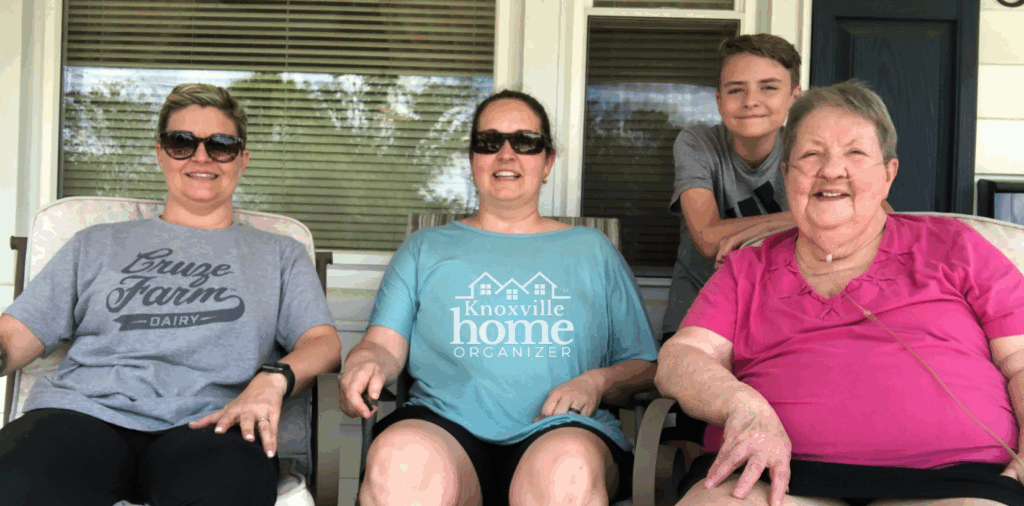When aging parents face a move—whether downsizing, relocating to be closer to family, or transitioning into a more supportive environment—the emotional terrain is already tender. Add multiple adult children with differing opinions, schedules, and emotions, and it can quickly turn from a team effort into a tug-of-war. But it doesn’t have to.

We’ve walked beside many families during these pivotal moments, and what we’ve learned is this: when siblings come together with intention, clarity, and compassion, the move becomes not just manageable, but meaningful.
Let’s explore how you and your siblings can be the support team your parents actually need, without unintentionally overwhelming them or one another.
1. Shift the Focus: It’s About Them
When multiple adult children are involved, each may bring their own emotional baggage, preferences, or visions of “what’s best.” But the anchor must remain: this move is for your parents.

Start with a united agreement:
“We want to honor Mom and Dad’s wishes and support them in a way that protects their health, independence, and peace of mind.”
This shared goal sets a tone of respect and teamwork. When decisions arise, ask: “What would bring the most ease or dignity to our parents right now?” rather than, “What do I think should happen?”
2. Designate Roles Based on Strengths
Not everyone has to do everything. And in fact, trying to do it all, together, can create chaos and conflict.

Instead, divide roles by natural strengths and availability:
- Is one sibling local and able to handle in-person tasks?
- Does someone have a knack for spreadsheets, organizing, or communicating with professionals?
- Who is best at emotional support and listening without rushing decisions?
Honor each other’s contributions and be realistic. Overloading one sibling creates resentment, and checking out entirely isn’t fair to the rest.
If helpful, create a shared document or group chat where updates, timelines, and responsibilities are posted clearly to reduce duplication and confusion.
3. Bring In a Neutral Third Party
One of the kindest things you can do for everyone involved—especially your parents—is to bring in a professional who is not emotionally entangled.
A home organizer and move manager specializing in aging adults, like our team at Knoxville Home Organizer, brings calm, clarity, and practical experience to help navigate decluttering, downsizing, safety concerns, and emotional sticking points.

Having a neutral party can also reduce sibling disagreements by offering functional, expert guidance. It takes the weight off your parents while honoring their voice in the process.
4. Talk To Your Parents, Not At Them
It’s natural to want to “take over” when you’re trying to protect your aging parents. But when communication shifts into commands, even the most well-intentioned children can unintentionally make their parents feel small, powerless, or like a burden.

Avoid rushing decisions. Instead of saying,
“You need to get rid of this,” try: “I know this piece was really useful at one time, but it seems like you may not need it anymore.”
Validate their memories, even when the item itself may not have a place in the new space. Listening without rushing earns trust and keeps tension low.
5. Anticipate the Emotional Undercurrent
This move isn’t just about furniture and boxes. It’s about identity, control, legacy, and letting go.
Your parents may grieve even if they know the move is for the best. They may second-guess, reminisce, or resist. That’s normal. Hold space for that emotion, rather than trying to fix it.

You might also find old sibling dynamics resurfacing. Be aware of your triggers, practice grace, and when needed, pause for perspective.
6. Create Moments of Connection
Don’t let the move become a to-do list that steals opportunities for warmth.
Set aside time for joy amidst the work: go through photo albums together, share a family dinner in the old house, or capture a memory in the empty living room before the final box is sealed.
In 2019, I had the privilege of working alongside my twin sister, Lisa, to declutter my mom’s home. While we worked hard over many long days, we also took time to laugh over old photos and reminisce over pieces of our childhood. What could have been a daunting task turned into a sweet, productive time together as a family.

Moves often stir nostalgia, but they can also renew relationships when approached with intention.
7. Plan for the “After”
Support doesn’t end when the moving truck pulls away.
Check in regularly post-move. Is their new space meeting their mobility or safety needs? Are they feeling settled emotionally? Does something feel “off” that might need to be re-evaluated?

Creating a follow-up plan shows your parents that this transition wasn’t just a project; it was a step in continuing to care for them, together.
Closing Reflection:
Your aging parents don’t need perfection—they need peace. With thoughtful coordination, clear communication, and a united heart, you and your siblings can be the steady presence they lean on during a time of big change.

It’s not about doing everything right. It’s about showing up with love, listening more than directing, and remembering that the move is just one chapter in your family’s story—not the whole book.
What would it look like if you and your siblings led this transition not with urgency, but with unity?
In your corner,

Allison and the KHO Team
Additional Resources On This Topic
- How to Manage Sibling Relationships Strained by Family Caregiving
- Home Away from Home: Relocating Your Parents
If this post content has been helpful to you and you know someone else who would benefit from this content, would you please share it using the options below? Sharing is such a simple way to spread a little encouragement!
